
EARLIER BATTLES WERE FOUGHT in open terrain but since World War II, urban warfare (UW) has become increasingly dominant and decisive. The reasons for this are many like a weak defender’s attempts at overcoming the asymmetric advantage of a more powerful opponent, insurgency (revolution) and shift of population from rural to urban area. Combat in urban areas can be the most destructive due to densely populated terrain, all military weapons not suitable for UW, close quarter battle (CQB), hand to hand combat and ruthless behaviour of non state forces who do not believe in rules of engagement. A quote from Vietnam War indicates the nature of urban warfare, “it became necessary to destroy the town to save it.” In the Iraq and Afghanistan war many towns held by ruthless terrorist organisations had to be destroyed to save the innocent population from further harm. Urban fighting increases the attrition rates on people and equipment through enemy action, environmental wear and tear and non-battle injuries. It includes looting, civil disturbances, insurgences, and other levels of conflict where military forces may be sent to conduct stability operations, such as counterterrorism, counterinsurgencies and peacekeeping.
Definition
The US census defines an individual urban area as one with 50,000 or more residents but this will differ from country to country. No one city is the same and so will be the tactics required to be followed. Similarly equipment may also differ depending on the type of terrain, opposition and population. Sometimes dictators like Hitler cause genocide and urbicide while taking control of cities. Aleppo in Syria and Mosul in Iraq are two examples of urbicide in modern times. Mosul, the second largest city in Iraq, was reduced to rubble during the nine-month battle to reclaim it.
Brief profile of Urban Warfare
Physical impact of the urban environment.
この記事は SP's Land Forces の October - November 2019 版に掲載されています。
7 日間の Magzter GOLD 無料トライアルを開始して、何千もの厳選されたプレミアム ストーリー、9,000 以上の雑誌や新聞にアクセスしてください。
すでに購読者です ? サインイン
この記事は SP's Land Forces の October - November 2019 版に掲載されています。
7 日間の Magzter GOLD 無料トライアルを開始して、何千もの厳選されたプレミアム ストーリー、9,000 以上の雑誌や新聞にアクセスしてください。
すでに購読者です? サインイン
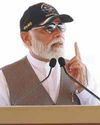
Indigenous Might on Display
INA RAPIDLY EVOLVING global landscape marked by geopolitical tensions and emerging security threats, nations around the world are continuously enhancing their military capabilities to ensure sovereignty and national security.
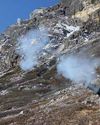
Future of Battlefield Lethality
A look at the latest trends reshaping Land Warfare Munitions
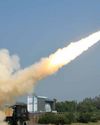
Indigenous Ammunition Production
Meeting the critical need for ammunition by the Armed Forces requires rapid ramping up of indigenous production
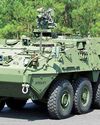
Stryker Production under 'Make in India'?
India explores joint production of Stryker armoured vehicles with the US as part of their Strategic Alliance
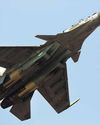
Rosoboronexport goes on to work on Technology Partnership Contracts with Friendly Countries
Empowering Global Defence Production through Innovation, Collaboration and Pioneering Technology Partnerships in the evolving landscape of Military Cooperation
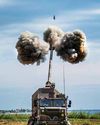
Yugoimport - A Global Player in Artillery
Yugoimport-SDPR has constantly innovated itself as a manufacturer of complex weapon systems and defence equipment
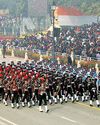
Womanpower in Uniform: Republic@75
India takes a big stride into the future as Women Warriors lead the charge in India's 75th Republic Day Celebration

Defending DRDO: Restructure the Responsibilities
A strategic transformation of DRDO is needed to chart a course for excellence in defence technology and a more agile and responsive future
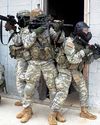
Fighting Terror: Armies in New Urban Warfare
Navigating the realities of Urban Warfare and lessons drawn from the ongoing global fight against terror
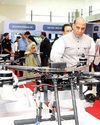
Indian Army: In Quest of Greater Firepower and Policy Recommendations for Gaps
Charting the Future under General Manoj Pande's Vision for a Tech-Driven Army, the Indian Army is driving ahead for Next-Gen Combat Capabilities